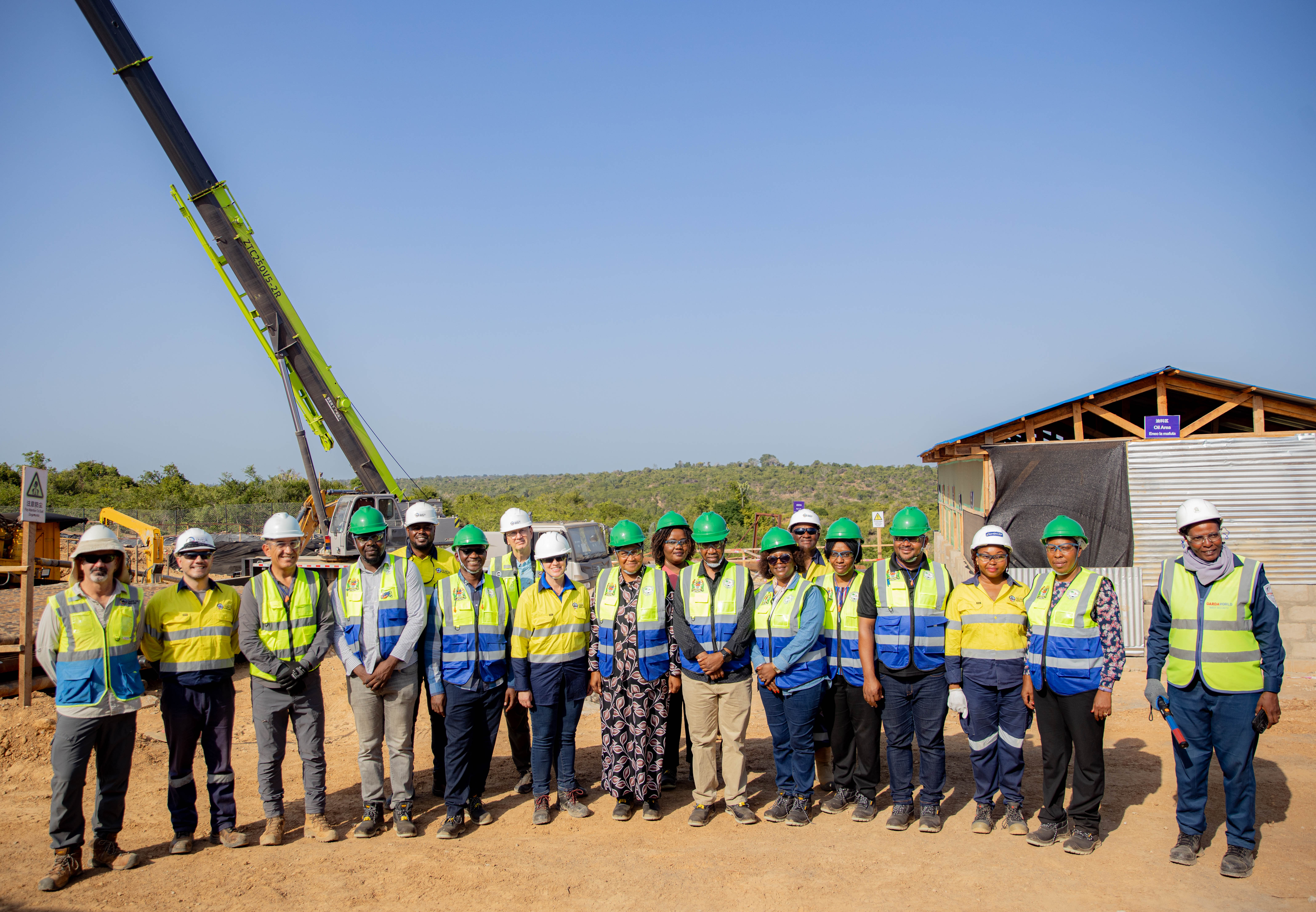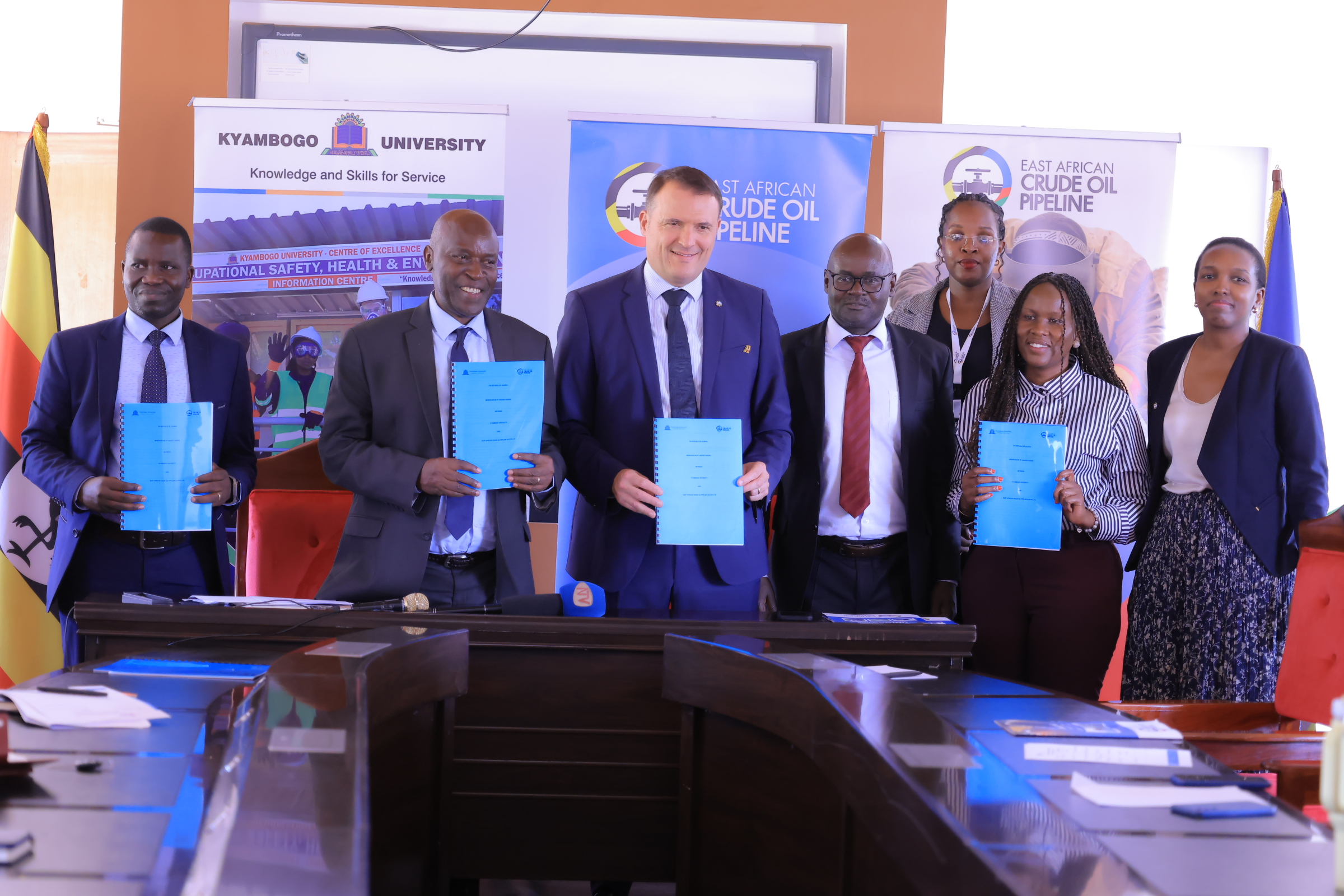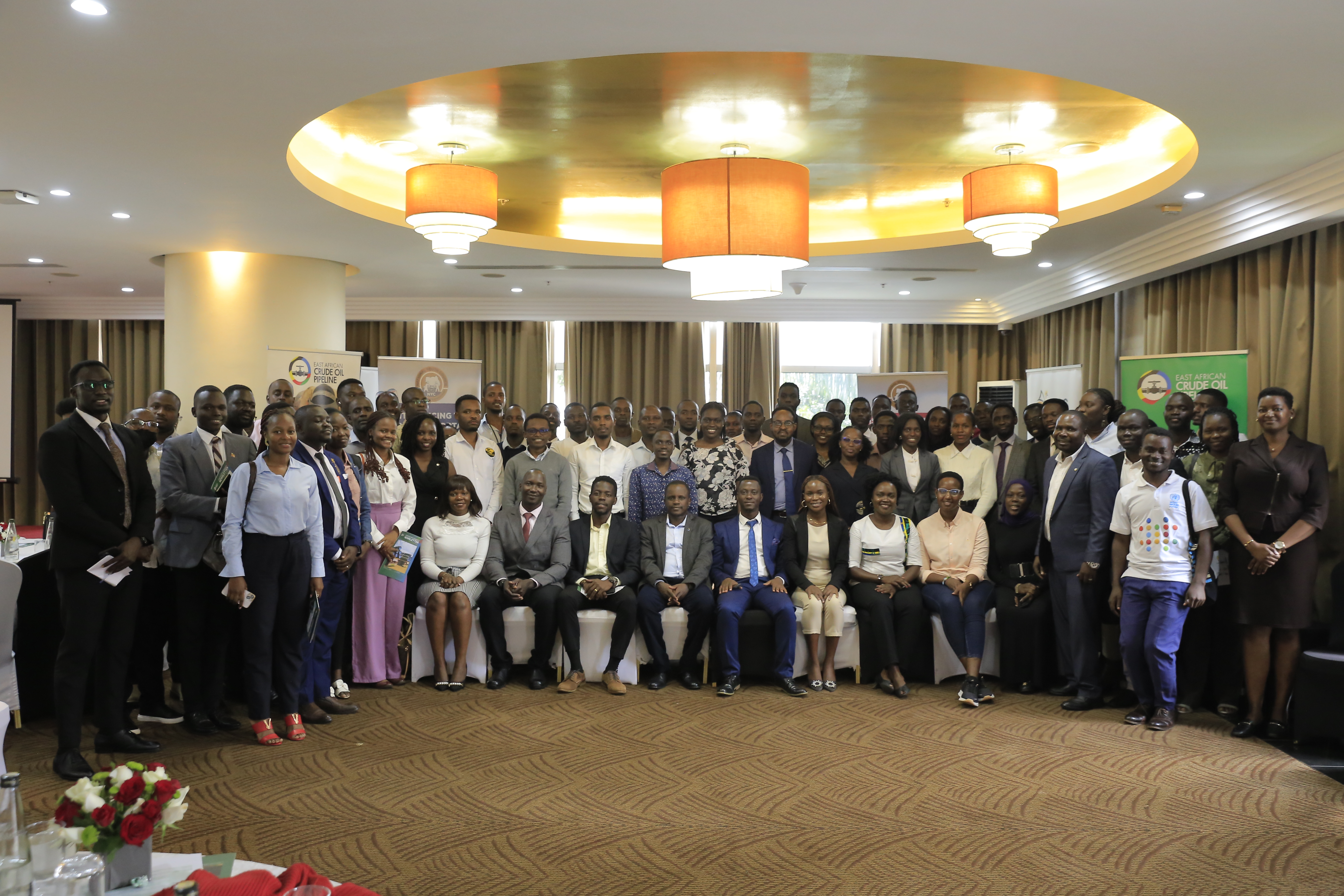On Monday, January 20, 2025, the National Environmental Management Council (NEMC) Board of Directors and…

EACOP equips project-affected households with skills and provides starter inputs to boost their agricultural production in Lwengo and Mubende Districts.
The East African Crude Oil Pipeline (EACOP) Ltd has provided agricultural inputs starter packs and training to project affected households as outlined in the Resettlement Action Plan (RAP). This training is on use of better production practices and improved inputs/technologies like high yielding seed are intended to help these affected households improve their food production for food security, enhance their resilience to shocks and have surplus for sale. The distribution of these starter packs follows participation in a tailored hands-on and interactive training to enable their full utilization on their remaining plots of land or acquired new land.
In Lwengo District, 503 Project affected households will receive support in form of training, starter packs comprising of improved seed, fertilizer and key farm tools and equipment. On completion of the training modules at the end of the season, the project implementing partners, Asigma Capital and Community Integrated Development Initiatives (CIDI) will further support these households with linkages to input dealers and produce markets for sustainable access to improved inputs and stable household incomes.
In Mubende District, 622 Project affected households will receive support in form of training, starter packs comprising of improved seed, fertilizer and key farm tools and equipment. On completion of the training modules at the end of the season, the project implementing partners, Montrose Africa ltd and Hoima Carita Development Organization (HOCADEO) will further support these households with linkages to input dealers and produce markets for sustainable access to improved inputs and stable household incomes.
This initiative is part of the company’s commitment to empower affected households through Livelihood Restoration programs, aiming to restore, transition, and improve their livelihoods by utilizing available household resources post-resettlement, and will be implemented across all 10 Districts crossed by the EACOP.
About the Livelihood restoration program
- Project related land acquisition leads to loss/ reduced access to land, dwellings, natural resources, and other productive assets. This often leads to loss of income and other means of livelihood means to projected affected households/PAPs.
- The objective of the Livelihood Restoration Program is to provide project affected persons whose livelihoods or income levels are adversely affected an opportunity to improve, or at least restore, their means of income-earning capacity, production levels, food security and standards of living.
Livelihood restoration is being implemented in two phases.
Phase 1:
Provide transitional support to households as a short-term measure to support their food security in terms of Dry rations/ food baskets within the first 6-12 months as soon as the affected Households vacate land.
Transitional support: This is short-term support given immediately to project affected households once they leave or cease to have access to the land that the project has acquired. During this time, they are also enrolled on agriculture productivity improvement program to boost their food production. This support in the form of food baskets to retain their food security for a period of 6-12 months. The amount you receive and how long you’ are supported depends on how heavily they have been impacted. Additionally, those whose dwellings have been displaced receive relocation support to their new homes.
Phase 2 & 3:
Provide Households with opportunities and support through Agricultural productivity Improvement activities and enhancing skills of household members through vocational training and local based skilling programs. Phase 3 involves additional optional packages that will be delivered to PAHs after assessment of progress during Phase 2.
The nature of support and duration depends on how heavily you will have been impacted.
- Specifically, agricultural support is in the form of
- Training through interactive and hands on learning on use of good agricultural practices, improved livestock rearing practices and technologies. Enhancing their knowledge and application of climate smart practices to improve household resilience to shocks and soil nutrient management.
- Support with basic inputs and equipment’s to improve their productive capacity,
- Strengthening their market and input linkages for sustainable production.
- Enterprise development training includes local -level based skilling, vocational training and entrepreneurship training to increase their household members employability or to enable them set up/grow their small-scale business.
Two contractors and two local implementing partners are delivering these livelihood restoration packages to all affected households in the 10 districts through which the pipeline right of way crosses i.e. Sembabule, Gomba, Lwengo, Kyotera and Rakai, Hoima, Kikuube, Kyankwanzi, Kakumiro and Mubende.



